
von Monica Huang
Researcher at the Life Cycle Lab, University of Washington
I’m not going to lie — the Parametrische offene Daten für die Ökobilanz (POD|LCA Project) has been a challenging project. It’s been so challenging that I’ve been making memes about it, with the help of our team’s various pets. Here are a few.
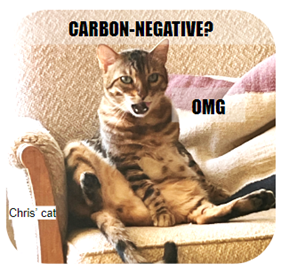 Carbon-negative? In 2022, the Advanced Research Projects Agency-Energy (ARPA-E) announced funding for a program called Harnessing Emissions into Structures Taking Inputs from the Atmosphere (HESTIA). 18 HESTIA Teams were awarded funding to develop a carbon-negative material or building design solution. CLF, along with a team of researchers at the University of Washington (the Center for International Trade in Forest Products and the Integrated Design Lab), was awarded $3.7 million over 4 years to develop custom, parametric LCA screening tools to evaluate carbon-negative projects.
Carbon-negative? In 2022, the Advanced Research Projects Agency-Energy (ARPA-E) announced funding for a program called Harnessing Emissions into Structures Taking Inputs from the Atmosphere (HESTIA). 18 HESTIA Teams were awarded funding to develop a carbon-negative material or building design solution. CLF, along with a team of researchers at the University of Washington (the Center for International Trade in Forest Products and the Integrated Design Lab), was awarded $3.7 million over 4 years to develop custom, parametric LCA screening tools to evaluate carbon-negative projects.
We are putting together methods, compiling LCA data, and creating tools to help calculate LCA impacts for R&D teams to help them determine whether their projects are truly “carbon-negative.”
As shown in the meme above, Chris’s cat couldn’t believe we were tackling this topic. His expression says it all. It is very ambitious.
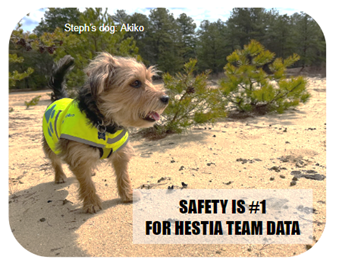 HESTIA Team Data. As a part of the HESTIA Program, we needed to work with all of the HESTIA Teams. Since the HESTIA Teams had to share potentially proprietary data with us, we had to sign Data Transfer and Use Agreements (DTUAs) with each HESTIA Team and take special precautions for file storage, file sharing, and general data privacy. This involved a lot of bureaucracy, legalese, and anxiety, but it was important.
HESTIA Team Data. As a part of the HESTIA Program, we needed to work with all of the HESTIA Teams. Since the HESTIA Teams had to share potentially proprietary data with us, we had to sign Data Transfer and Use Agreements (DTUAs) with each HESTIA Team and take special precautions for file storage, file sharing, and general data privacy. This involved a lot of bureaucracy, legalese, and anxiety, but it was important.
As shown on the right, Steph’s dog, Akiko, demonstrates our commitment to data protection through her hi-viz safety vest: “Safety is #1.”
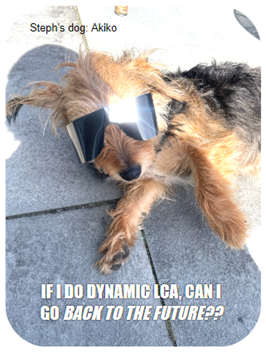 Dynamic LCA. One of the requirements of this project was to incorporate dynamic LCA into our methodology. We’re still figuring this out, but once we do, I hope we can go back to the future and be done with all the hard parts already.
Dynamic LCA. One of the requirements of this project was to incorporate dynamic LCA into our methodology. We’re still figuring this out, but once we do, I hope we can go back to the future and be done with all the hard parts already.
On the left, Akiko is demonstrating the coolness of this project through her very cool doggy sunglasses.
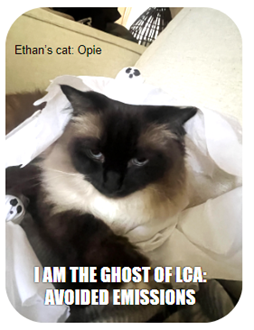 Biogenic carbon. Another challenge of this project is tackling the challenging issues surrounding biogenic carbon in LCA.
Biogenic carbon. Another challenge of this project is tackling the challenging issues surrounding biogenic carbon in LCA.
For example, the concept of “avoided emissions.” On the right, Ethan’s cat, Opie, is using Halloween decorations to frame this deeply philosophical concept: Are emissions really emissions if they are never emitted? Are avoided emissions… the Ghost of LCA?
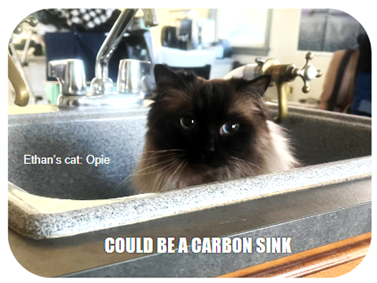 Carbon sinks. Buildings have the potential to reduce greenhouse gas emissions on a global scale by acting as carbon sinks. But what about kitchen sinks?
Carbon sinks. Buildings have the potential to reduce greenhouse gas emissions on a global scale by acting as carbon sinks. But what about kitchen sinks?
Again, Opie is a thought leader in this field, as shown on the left.
LCA data. Perhaps the biggest challenge on this project is finding LCA data for all of the special materials that the HESTIA Teams are using in their labs—materials that cannot be found in standard LCA databases. My cat, Igloo, is very concerned about this, as shown below. What if we can’t find data in any databases or the “literature” and also what if we can’t find proxy data? What are we going to do?
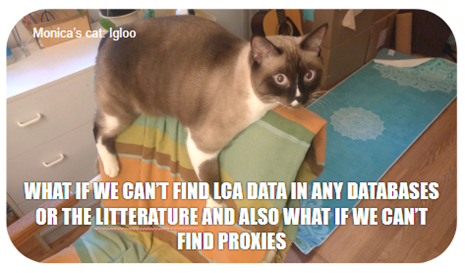
Recently, though, we’ve had a breakthrough on this front: The Idemat database. Credits to: Azeezah Priyota for finding the Idemat database, Kate Simonen for investigating the Idemat database, and Ethan Ellingboe for working out how to use the proxy data from the Idemat.
That’s all I have for now. I hope these memes brighten your day and perhaps inspire you to make memes about your own work or embodied carbon. If you do, please share them widely and also with me.
I would like to thank the members of the POD|LCA Team who sent me pictures of their pets; Kate for letting me take these memes to 2024 ARPA-E Energy Innovation Summit and making stickers out of them; and Gokul Paranjothi from the NREL Alaska Team for noting that “literature” should be spelled “litterature.”
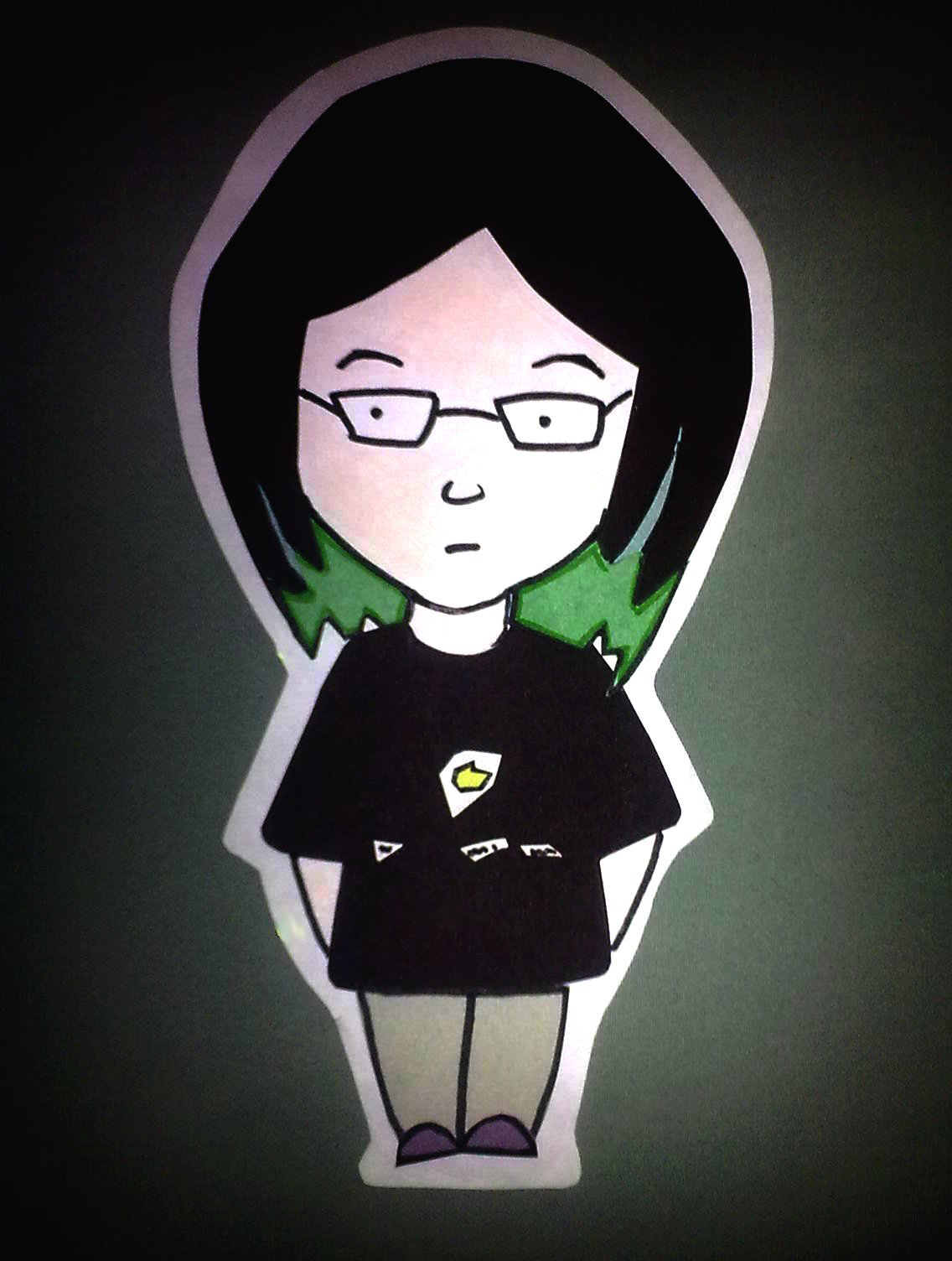
Monica Huang is a research engineer for the Life Cycle Lab at the University of Washington. Her background is in civil and structural engineering and currently works on research on environmental life cycle assessment (LCA). Research expertise includes the environmental impacts of earthquake damage, LCAs of office tenant improvements, and LCAs of mass timber buildings. She was the lead author on the CLF’s LCA Practice Guide and coordinated the CLF’s Wood Carbon Seminars.